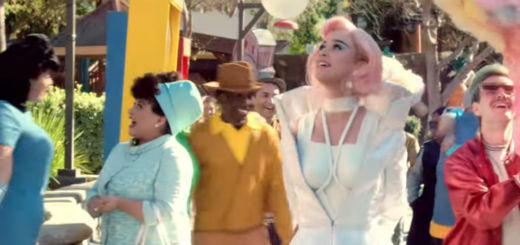Spotlight Teaches Us To Be Wary Of Ourselves

By MATT SHAPIRO
Every Oscar season, I try to watch every film that is nominated for Best Picture, an exercise that often forces me to see films I wouldn’t normally have seen. This year, that film was “Spotlight.”
On the surface, “Spotlight” is about the Boston Globe investigative team that broke the story of the dozens of priests had committed sexual abuse against disadvantaged youth and how the Catholic Church had covered up cases of child abuse to shield these abusive priests.
The reason I wasn’t interested in this movie is because I know about this story. I mean … who doesn’t? The knowledge of the Catholic Church’s shame here is practically a part of our culture. There are dozens of movies, books, and documentaries on this disgrace chapter of the Church. What more could Spotlight possibly bring to the table?
This is actually the kind of clip that would have dissuaded me from seeing this film. How many films about righteous crusading journalists standing up to evil Christians do we really need? Is this not a well-worn path?
“Spotlight isn’t just about sexual abuse in the Catholic Church. It is about how power structures and our respect for “larger causes” can make us blind to crime and injustice.”
It’s a shame this clip ends when it does because the next part of this scene is the far more interesting part. Jim (Jamey Sheridan) confirms the list of priests that Robby (Michael Keaton) gives him … and then asks Robby why he never did anything. We discover that the several of the people protecting the church (including Jim) had gone to the press in years past only to see their stories buried by a press uninterested in pursuing the story further. One story in particular pointed to 20 pedophile priests and was ignored by Robbie himself.
It was at the moment that I realized that “Spotlight” isn’t just about sexual abuse in the Catholic Church. It is about how power structures and our respect for “larger causes” can make us blind to crime and injustice. It’s about how people are reluctant to accept criticism of a group or institution that they love. And it’s about how a press culture uninterested in injustice makes itself complicit in that injustice.
This makes me think about what groups or institutions make me want to avoid investigation or make excuses for. I see that some with criticism of the evangelical church, although Christians criticizing the church is basically a cottage industry in and of itself. I hear self-directed criticisms from the pulpit at my own church. We have a culture in which, if you choose to be critical of church and Christians, there are plenty of people out there to reinforce you.
I see some of this in myself with the Republican party, although (again) there are plenty on the right who are happy to be critical of the GOP. I don’t think I’ve ever seen a reporter who was overly cautious and said “Oh … this piece reflects poorly on the GOP. I’d better sit on it until I’m certain I have a rock solid case.”
On the other side of the fence, the media’s refusal to break the Monica Lewinsky story is one of the key moments that launched The Drudge Report to prominence. And not a lot of films exposing left-leaning institutions go on to be critical darlings.
There is a certain irony to an Oscar-nominated movie with an all-star cast about how no one wants to criticize the Catholic Church. This is a safe movie to make.
What would it take to make a critically acclaimed movie about the sexual abuse and child prostitution from United Nations peacekeepers? This isn’t some controversial hypothetical; it is undisputed that UN peacekeepers were massively involved in prostitution in Cambodia, Bosnia, Kosovo, Haiti and Sudan. Yet the Wikipedia piece on it is shorter than this blog post.
“UN involvement with child prostitution isn’t a story. A few bad eggs, maybe, and we can’t attack the institution of the UN and disrupt all the good work they do because of a few bad eggs, right?”
There is, in fact, a movie called “The Whistleblower” that details the true story of a UN monitor who was fired for revealing that UN peacekeepers were part of a sex trafficking ring in Bosnia. The producer struggled for years to obtain financing and it opened and closed without a blip. To this day, they have never been prosecuted and enjoy immunity from prosecution in Bosnia.
Imagine someone watching “Spotlight” and then concluding that it’s not a story about the Catholic Church, but a much more general story about covering up sexual abuse. This is what you would get if Stephen Holden of the New York Times reviewed Spotlight the way it reviewed “The Whistleblower”. He writes that the message of the movie is that “in the moral quagmire of war and its aftermath, human trafficking and corruption are collateral damage.”
It isn’t the UN that is responsible; it’s it “war.” Or maybe the DynCorp, the company that fired the whistleblower Kathryn Bolkovac, is responsible … even though sex trafficking and child prostitution happen on UN missions when DynCorp was not involved. Even though it’s still happening. But no one talks about it. UN involvement with child prostitution isn’t a story. A few bad eggs, maybe, and we can’t attack the institution of the UN and disrupt all the good work they do because of a few bad eggs, right?
In fact, you can find the exact rhetoric of those defending the Catholic Church in the mouths of those defending the UN.
The Catholic Church did a terrible thing, of this there is no doubt. But it’s also safe to shame them for it. It’s safe to put their sins in books, plays, movies, to attack the Church as a whole for these crimes.
The bigger question that Spotlight touches on is: What crimes do we still ignore? What institutions will we make excuses for? Who will we tenaciously defend because we think they are mostly doing good? What injustices are we blind to because we’re aligned through politics or religion or lack or religion or cultural-social commonalities?
Roger Ebert called the UN involvement with prostitution “unbelievable” and Stephen Holden called it “a story so repellent that it is almost beyond belief.” I see that phrase a lot and it makes me wonder: why it is so hard to believe that people convinced of their own righteousness and insulated from the consequences of their evil would continue in that evil? Isn’t that one of the most obvious, consistent stories in history?
This is the larger story of “Spotlight.” Shouldn’t we look at the institutions we admire and ask ourselves how we might be contributing to injustice in our defense of them?
Matt is a software engineer, data vis designer, genetics data hobbiest, and technical educator based in Seattle. He tweets under @politicalmath, where he is occasionally right about some things.



